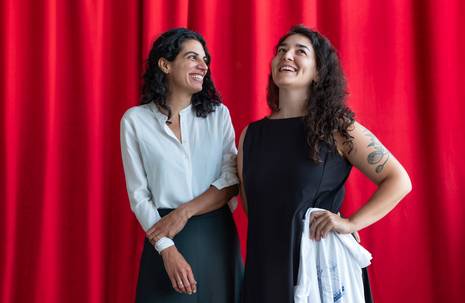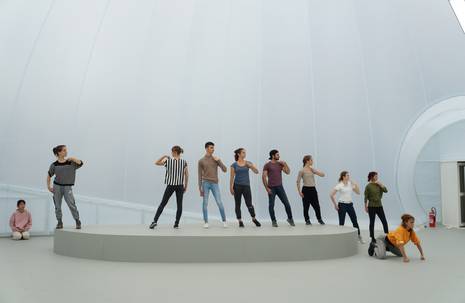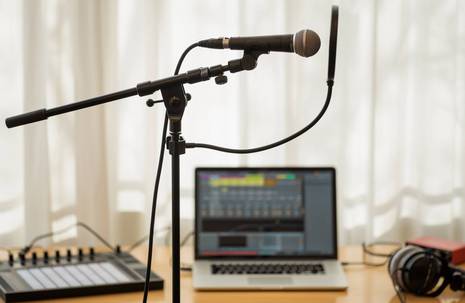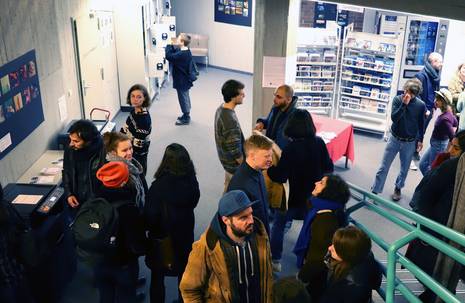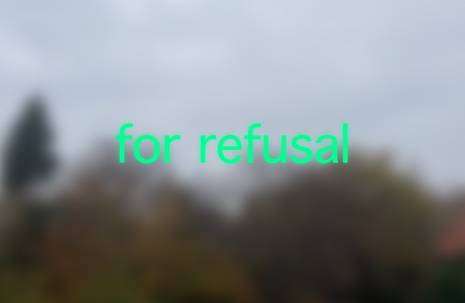Zipp
German-Czech Cultural Projects 2008 - 2010
Programme description
The Federal Cultural Foundation has launched Zipp - German-Czech Cultural Projects in the series of bilateral cooperative projects with countries in Eastern Europe. Zipp was preceded by Büro Kopernikus (external link, opens in a new window)- German-Polish Cultural Encounters (2004-2006) and bipolar (external link, opens in a new window) - German-Hungarian Cultural Projects (2005-2007).
Zipp - German-Czech Cultural Projects focused on selected themes and issues which are equally relevant to both German and Czech society. These included, for example, the legacy of the democracy movement, dealing with historic traumas, the personal experience of economic transformation after 1989 and the future of our cities. All the projects funded through Zipp were based on the principle of cooperation between German and Czech partners from their conception to their realisation.
By 2009 a series of theatre, film, radio, architecture, fine arts and contemporary history projects and productions were carried out based on one of four main thematic areas: "1968 / 1989", "Utopia of Modernity: Zlín", "Real Life" and "Kafka". All the projects dealt with the various aspects of present-day Europe. The Zipp programme did not aim, however, to analytically assess the past, but rather concentrated on the current positions of contemporary art, culture and social reality, and sought common elements in contemporary society of both countries.
A theme-based evening of events titled "Crossing 68/89 (opens in a new window)" kicked off the Zipp programme, at the Academy of the Arts on Pariser Platz in Berlin on 30 May 2008. This event was followed by a three-day international scientific conference in Prague (15 - 17 June 2008).
The main thematic areas
1968 / 1989
The 40th anniversary of "Prague Spring" was commemorated in 2008, and in 2009, Europe celebrated the 20th anniversary of the fall of the Berlin Wall. The interdisciplinary project "68/89 - Art.Contemporary.History." involved the joint effort of the Centre for Contemporary History Research in Potsdam, the Institute of Contemporary History in Prague and four theatres in the Czech Republic and Germany: Archa Theatre Prague, Kampnagel Hamburg, Sophiensaele Berlin and Centrum experimentalního divadla (Centre for Experimental Theatre) / Divadlo Husa na provázku (Goose on a String Theatre) in Brno. Theatre productions (Everything will change, Exit 89, Nico - Sphinx of Ice), discussion and film series, art projects, lectures and concerts (Performing 68/89, Transforming 68/89 - The Velvet Festival) have been realized.
The project "68/89 - Art.Contemporary.History." strived to do justice to the multifaceted and often contradictory aspects of these turning points of history. The programme, created in cooperation with partners from the fields of science and the arts, focused on the reform process of former Czechoslovakia in 1968. It evaluated "Prague Spring" as part of the social protest movements and cultural avant-garde in Europe of the late 1960s. However, the project also went beyond 1968 and examined the cultural development following the conclusion of the reforms in Czechoslovakia, the fate of the East-West contacts during their "normalisation" and how the 68ers influenced the fall of the Iron Curtain. In the end, the programme examined how the commemoration of the momentous historic events of 1968 and 1989 functions today, which myths and symbols have become engrained in our collective memory and what significance the collapse of communism has on 1968 in hindsight.
Real Life
"Real Life" refers to the Zipp projects which examined the reality of life in Germany and the Czech Republic through a variety of artistic formats. German and Czech radio broadcasters were collaborating on the project "rádio d-cz" featuring five radio artworks by writers, radio play producers and composers who captured individual and collective experiences and presented them to radio audiences in both countries. The theatre collective Rimini Protokoll, acclaimed for its work with amateur actors, was developing a theatre project titled "Vùng biên gió'i". Using archived materials and amateur actors from Dresden and Prague, the group presented a performance based on fictitious local specifics. "Breathless (opens in a new window)" is a documentary film series, initiated by DOK Leipzig, the International Leipzig Festival for Documentary and Animation Films, and the Documentary Film Institute in Prague, which examines the upheavals that have taken place in Germany and the Czech Republic in the past decades.
Kafka
The Kafka conference held in the Liblice Castle in 1963 is regarded as a key intellectual precursor of the political upheaval in Czechoslovakia that culminated in "Prague Spring" in 1968. In commemoration of the 125th anniversary of the birth of Franz Kafka, one of the most prominent writers of European modernity, a conference in October 2008 titled "Kafka and Power. 1963 - 1968 - 2008 (opens in a new window)" examined the relationship between these important years in history in Liblice. Literary scholars, contemporary witnesses, historians and philosophers discussed the events of 1963 and 1968 and their relationship to one another. Zipp also supported the scientific work of a thirty-volume historical-critical edition of Kafka's works (FKA), currently being compiled and edited by the Germanists Roland Reuß and Peter Staengle. The goal of the FKA is to facsimile Kafka's complete works in their authentic form and make them publicly accessible.
Utopia of Modernity: Zlín
The Moravian town of Zlín is considered to be an industrial model city par excellence. It is the only idealized industrial city of modernity that was ever built - and yet, it is practically unknown. Constructed in the 1920s and 1930s, Zlín was based on Le Corbusier's "functional city", Howard's garden city and Garnier's "cité industrielle" and is inextricably linked to the Zlín-based company Bat'a - the world's largest shoe manufacturer at one time. The city's urban-utopian character is absolutely unique and, in terms of urban planning, it provides us a fascinating example of European industrial history. The economic, social, biographical and architectural relationships of this utopian urban planning project were analyzed by cultural scholars for the first time at an international symposium in Zlín and Prague in May 2009 and in an exhibition in autumn 2009.
A four-member curatorial panel comprised of outstanding authorities of German and Czech cultural life contributed their expertise to developing and carrying out the projects. The members of the panel were: Regina Bittner (director of the International Bauhauskolleg at the Bauhaus Dessau Foundation, Dr. Pavel Liška (vice-chancellor of the Academy of Art, Architecture and Design, VŠUP, Prague), Blanka Mouralová (director of the Collegium Bohemicum in Ústí nad Labem) and Dr. Tobias Weger (researcher at the Federal Institute for Culture and History of the Germans in Eastern Europe in Oldenburg).
Funded Projects
Contact
Zipp – deutsch-tschechische Kulturprojekte / relations e.V.
Blücherstraße 37A
10961 Berlin
Tel.: +49 (0)30 6165 7240
Fax: +49 (0)30 6165 7250
zipp(at)projekt-relations.de
Website:
www.projekt-zipp.de (external link, opens in a new window)

